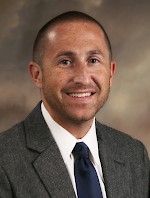AASP Newsletter - October 2016
CC-AASP: How to Ethically and Accurately Portray Your Credential
AASP Ethics Committee Members:
Edward F. Etzel, EdD, CC-AASP West Virginia University
Brandonn S. Harris, PhD, CC-AASP Georgia Southern University
Michael D. Zito, PhD, CC-AASP Morristown Clinical and Sport Psychology


 A common misperception among AASP members is that the Ethics Committee does very little. What members need to realize is that, due to the sensitive nature of matters the committee is charged with overseeing, information that can be disclosed to members and consumers pertaining to specific cases and inquiries is limited. We do, however, receive rather frequent questions from both students and professionals related to perceptions and concerns about ethical matters in the realms of teaching, research, and the practice of applied sport psychology. We are happy to receive any and all questions the membership and the community may have for us, so please continue to send those our way via the contact information located on the AASP website.
A common misperception among AASP members is that the Ethics Committee does very little. What members need to realize is that, due to the sensitive nature of matters the committee is charged with overseeing, information that can be disclosed to members and consumers pertaining to specific cases and inquiries is limited. We do, however, receive rather frequent questions from both students and professionals related to perceptions and concerns about ethical matters in the realms of teaching, research, and the practice of applied sport psychology. We are happy to receive any and all questions the membership and the community may have for us, so please continue to send those our way via the contact information located on the AASP website.
This article deals with a very important topic addressed in Principle B of our Ethics Code: ‘Integrity,’ and in Standard 7: ‘Misuse of AASP members’ influence’. More specifically, some recent inquiries have centered on how members who have become certified as consultants by our organization should accurately and ethically portray their credentials. Credentials are multi-level “indicator[s] of member accomplishment in a given field” that impact others’ perceptions of our competence (Koocher & Keith-Spiegel, 2008, p. 83).
A perusal of sport psych listserv emails and Google searches of resources like ‘sport psychology consultants’ reveals a broad range of self-portrayals – some of which are unethical. As a reminder, on your AASP Certification forms, your signature signified your commitment to abide by the AASP Code of Ethics, which provides guidance for your professional behavior. As a general rule, we all need to be extraordinarily careful about how we describe our backgrounds, credential, and titles (legally regulated in the state, province, or not). Furthermore, our ethics code tells us that we should also be concerned about the perceived ethical behavior of peers (Principle C: Professional and Scientific Responsibility) and “encourage [member] ethical behavior” (AASP Code of Ethics Preamble). Likewise, as per Standard 8 (Misuse of AASP Members’ Work), we must attend to how others may portray these qualifications in public (e.g., online, in press, audio/video media) and take efforts to modify misrepresentations. This statement means that if you encounter possible ethical infractions, you are ethically bound to attempt to educate your peer(s) and not just look the other way as if to say “it’s not my problem.” Promoting ethical behavior is in the best interest of our profession and advances our field. Remember, too, that the Ethics Committee can provide guidance to you in this regard.
So, back to our original question - How should a member who has achieved certified consultant status portray this credential? We have consulted the Certification Review Committee and the AASP Executive Board for guidance here. In a nutshell, one should include “Certified Consultant, AASP” or the abbreviation CC-AASP and your certification number could also be included, but it is not mandatory. The first option is somewhat more specific verbiage versus the latter abbreviation that may convey little to the public if they are unaware of the credential. Our website also directs members to list this credential after one’s formal name and highest university academic, degree. For example, Jane Doe, Ph.D., Certified Consultant, AASP or Jane Doe, Ph.D., CC-AASP.
Remember, that while AASP maintains that the Certified Consultant credential is prestigious, its achievement does not permit one to indicate that one is a “sport psychologist” (or similarly “licensed sport counselor”, etc.), unless the member is in fact licensed in her/his state/province. Additionally, the use of “sport psychology consultant” could also be problematic and possibly unethical given the terms “psychology”, “psychologist”, and “psychological” are generally legally restricted in use by only those licensed in their state/province when describing themselves and the services they provide. As such, we have observed alternative approaches to credential portrayal and title use among non-licensed practitioners as including, but not limited to, mental training consultant/coach, performance enhancement consultant, peak performance consultant, or others of the like.
Despite what some AASP members may think, having an advanced degree and CC designation is not the same as having a license to use the above restricted terms. It is important to be mindful that ethical and legal consequences can occur for using restricted terms as well as misrepresenting your AASP certification. An ethics complaint can be filed, which may have ramifications on AASP membership and certification. Some people do not appear to realize that significant legal consequences are also possible for use of the restricted terms mentioned above. A review of the potential legal consequence in the 50 states showed that fines and/or imprisonment are possible. Fines ranged from $100 to $50,000, with a typical range being between $1,000- $5,000. Imprisonment ranged from 30 days to 5 years, with a typical range of 6 months to 1 year.
This information is provided to help professional and student readers think about and appreciate the importance of having integrity in presenting professional credentials and abiding by the AASP Ethics Code and state laws to avoid potential financial hardship, harm to clients, and significant legal consequences. While we cannot tell non-licensed AASP consultants exactly what to call themselves, the Ethics Committee is available to offer consultation, such as the review of members' websites to help them more accurately portray their credentials in an ethical, appropriate way. Feel free to contact your AASP Ethics Committee with ethical concerns you may have about the issues addressed in this article or others of professional concern.
References
Association of Applied Sport Psychology (n.d.). About certified consultants. Retrieved from http://www.appliedsportpsych.org/certified-consultants/
Association of Applied Sport Psychology (n.d). Ethics Code: AASP Ethical Principles and Standards. Retrieved from http://www.appliedsportpsych.org/about/ethics/ethics-code/
Koocher, G., & Keith-Spiegel, P. (2008). Ethics in psychology and the mental health professionals: Standards and cases (3rd ed.). New York: Oxford University Press.



